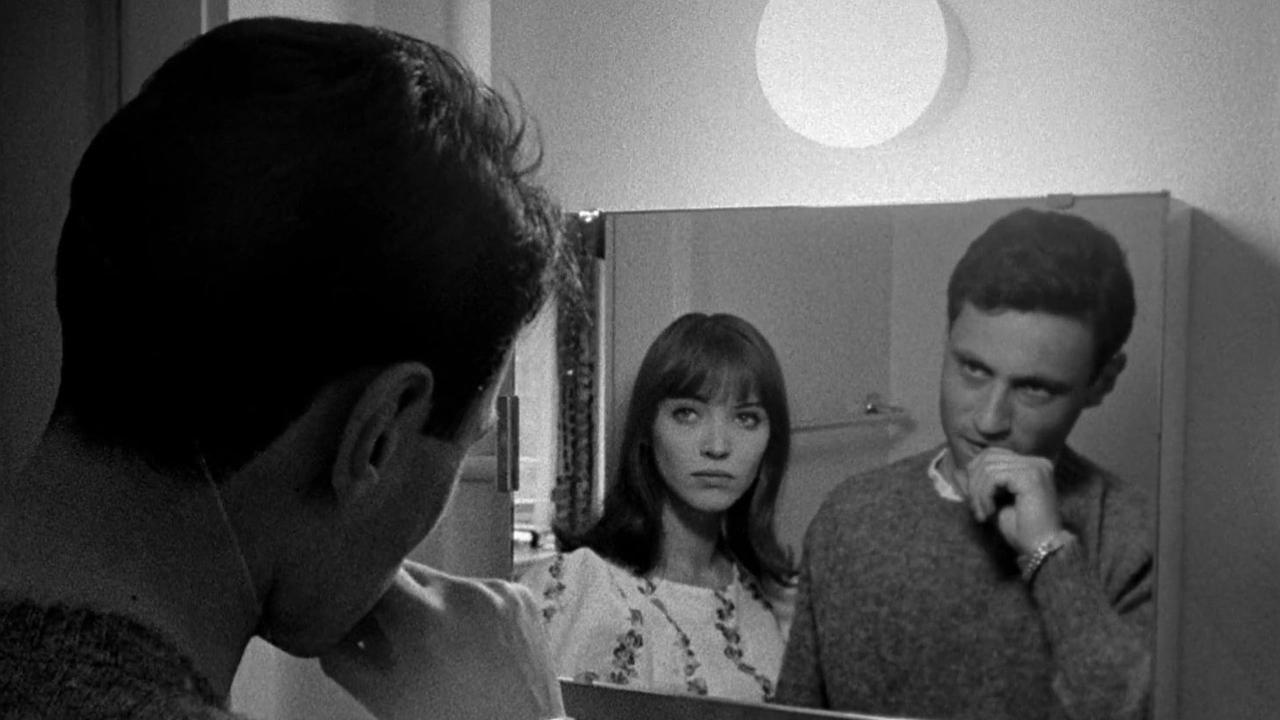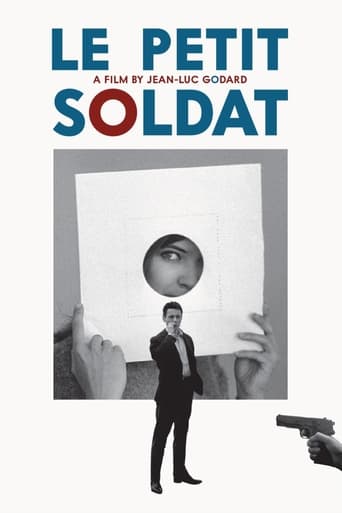

During the Algerian war for independence from France, a young Frenchman living in Geneva who belongs to a right-wing terrorist group and a young woman who belongs to a left-wing terrorist group meet and fall in love. Complications ensue when the man is suspected by the members of his terrorist group of being a double agent.The situation in Algeria and the denunciation of the use of torture by both sides are the main themes of the movie. This led to the film being banned for three years in France.I love how huge the Algeria-France situation looms in French cinema. Do most Americans know that France had a war going on there? Probably not. And yet, it was something the movie directors and artists were very conscious of. I suspect that French film was stronger on the Algerian issue than American films were on Vietnam, at least initially.
... View MoreI find accidentally on web at www.artmovies.tk Le petit soldat online watching. enjoy it this wonderful film. I find this film it's maybe the best example what could be a film as a artistic act, more than only a narrative illustration of a story. We know a lot of movies maker who enjoy it a lot of approach but in real there films are mostly very conventional and also have a "psychologicall " content. But the realization of the film it's not psychological. Trouffaut, Antonioni and Lynch are the best example for movie maker who wan to made really art but there vision of art are not up to date. We like the novel vogue but we try to realization what are inside of the formulation of that. We know very well Jean Pierre Mellvile with his criminal movies. he never have the intention to made a art movie. but he do it because he was or inside of his movie we can recognize the obsession of a unreal world, and he show us this world. Even if this world is a puberty boy world it is fascinating to see how consequent he show us this world.
... View MoreI've watched and re-watched the beginning sections, sometimes 5 minutes or sometimes up to 30, of many of Godard's films, and then either got too tired or just wasn't sure I could get through it all at the time. Sometimes it was because the material gets difficult and even egregious to what cinema, in concept, form, execution, ideas, amounts to. And sometimes there's also some very good stuff to savor too, as Godard thumbs his nose and makes new rules to break for himself. Le Petit Soldat, really his 2nd film after Breathless but released later, happens to carry with it, as was the case with Les Carabiniers, the political intent of his later films but with a brisker, more accessible avant-garde style to match the semantics. He also still has the energy going on full-throttle, and there are even moments where the jump-cuts start to feel even more exhilarating than one might've thought in Breathless. And at 80 minutes it says what it has to and exits, but while around leaves many memorable bits in its wake, some small like when Bruno (Michel Subor) rushes back to make a 'bet' by asking Anna Karina's Veronica Dreyer to move her hair around for him. It's a slight aside that's really wonderful, playful whimsy in a film that really doesn't have time for it. Another memorable moment is when Bruno is tortured, with the water crashing down on his head underneath the black mask.There's also some superb passages put into play, even if said multiple viewings are needed to grasp all of the method to what Godard is after in both the text and the look of the picture. As he's into extremes in style- either very fast in motion, skipping around narrative here and there like jump-rope, or deliberate and almost crude in its attention to length of shots and cutaways and reactions- there's also some extremes to deal with in the narrative too, the content. While it's not as deliriously nutty and experimental as Pierrot le Fou, with the political agenda there more open to interpretation, Le Petit Soldat is pretty serious stuff, with the Algiers topics and spy moments hot-button issues that Godard definitely cares about. What does it mean to be sort of wary of being a terrorist? Does one really commit to the allegiance or back down, and for what reason? Is it also impacted via the other side, who may be no more moral than his own? I still need to see this again some other time, if not just for the message pointers, then for the oddball tautness of the direction.
... View MoreBruno Forrestier (Michel Subor) is a 26 year-old Frenchman working in Geneva with links to extreme-right terrorists. Set in the background of the Algerian war, he cannot return to France as he has deserted but cannot remain in Geneva, where two terrorist groups suspect him of being a double-agent and shadow him menacingly throughout the film. Common to Godard films such as A bout de soufflé and Peirrot le fou, there is a palpable sense from the beginning that Bruno is living on borrowed time, so the action takes on a certain urgency within this shadow of danger. This is contrasted by the serene filming and narration, which evokes calm and certainty. Godard uses over-narration from the beginning, creating a sense of certainty with regard to the action, although distorting the viewer's perception of time, especially when the two at one time merge together. At the same time, the intensity of danger is capitalised on by the heavy use of close-ups of the characters, who are all stylishly dressed in suits and driving American cars. A hand-held camera is also used to bring the viewer even closer to the action and, we feel, to understanding the motivations of Bruno in what remains a highly political film. The viewer is kept on his toes by the inconsistent length of sequences, ranging from very long and intense (in apartments) to very short and spontaneous (mostly with moving cars). Godard cuts mercilessly between scenes which are only tenuously linked by the storyline and, in order to create a contrast, will not explain this with the narration but with the continuation of action in the film (to which the viewer must then stay gripped). With the cars, the clothes, the editing, the hand-held camera work and the use of close-ups and over-narration, the film is a pioneer of Nouvelle vague cinema, having been made before A bout de soufflé (1960), but banned in France until 1963 due to its political commentary. Ironically, these techniques create such an intense relationship between the screen and the viewer that the presence of politics is of secondary importance to the desire to understand each character and find out whatever little you can about them. In these ways you are drawn in and remain gripped to the film.
... View More